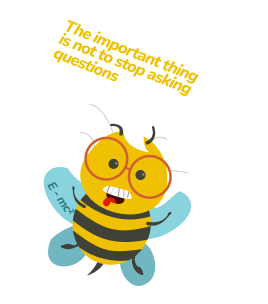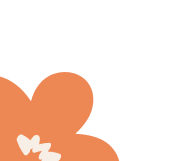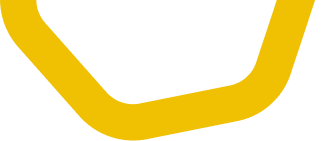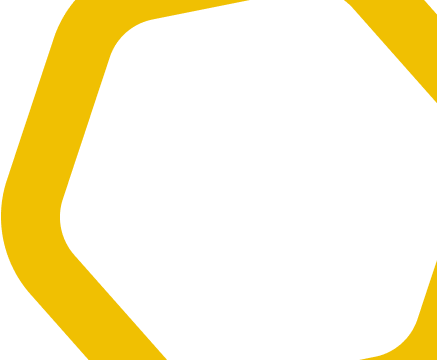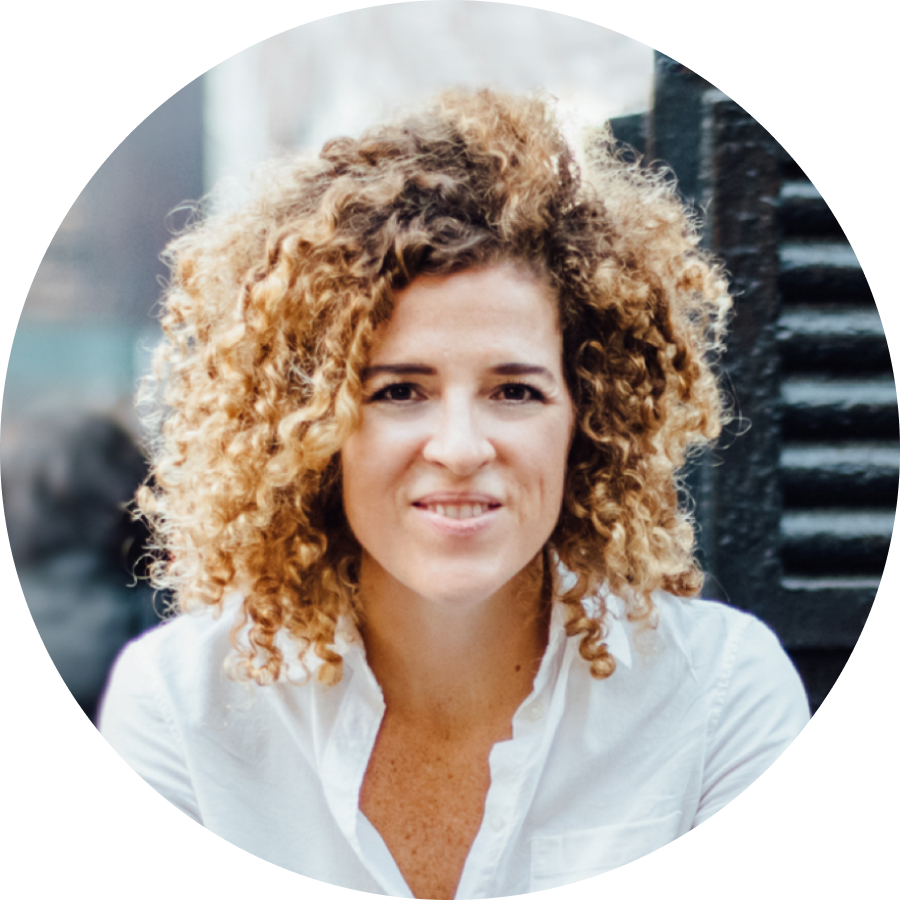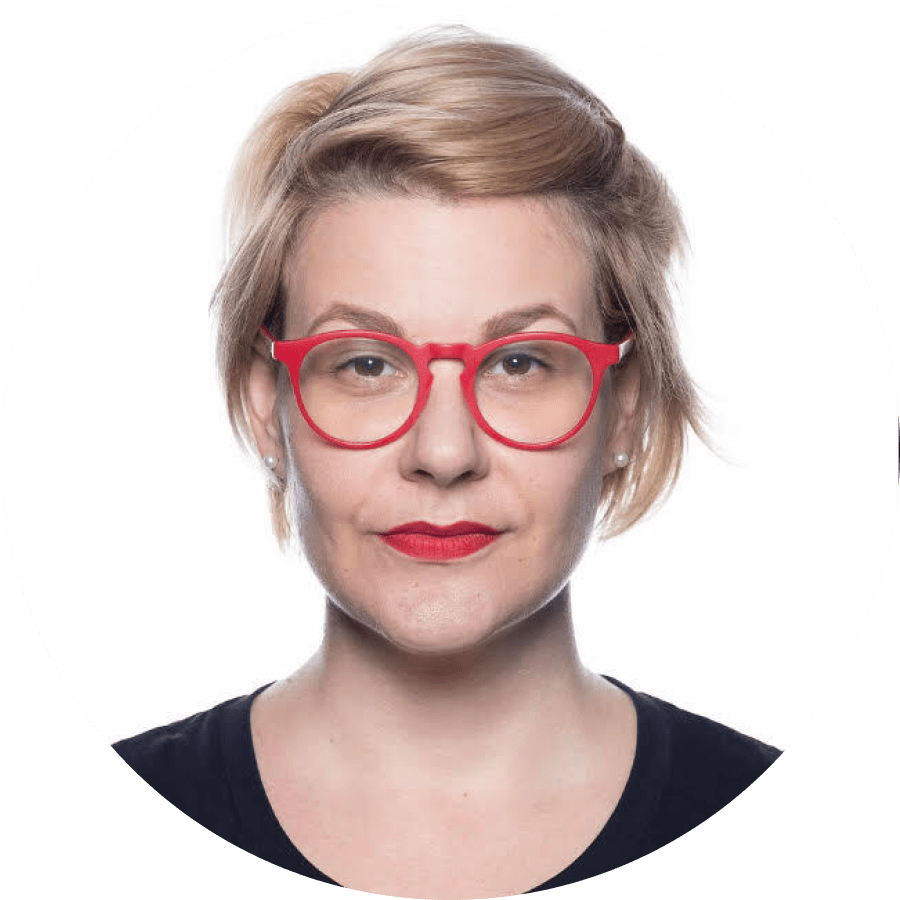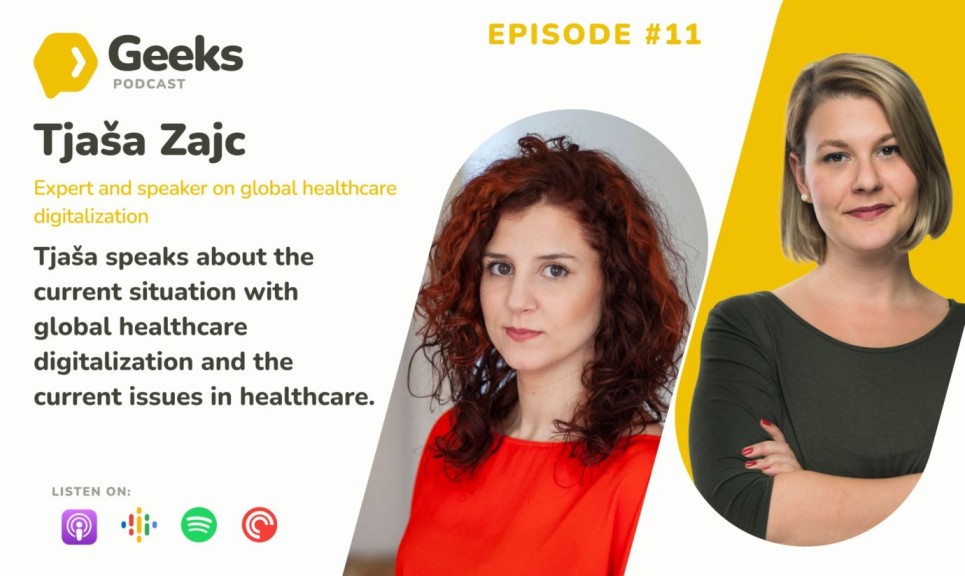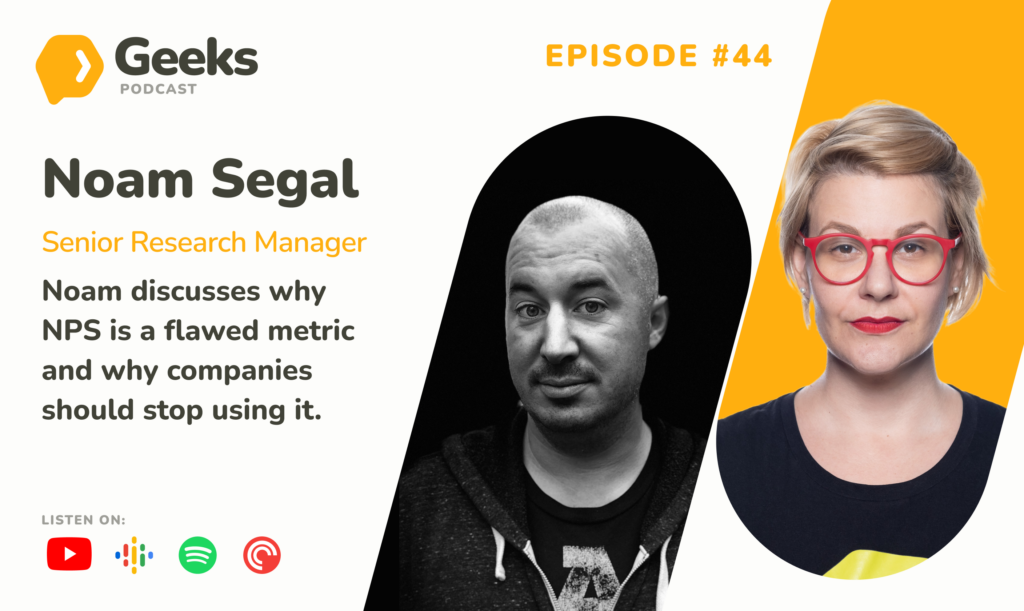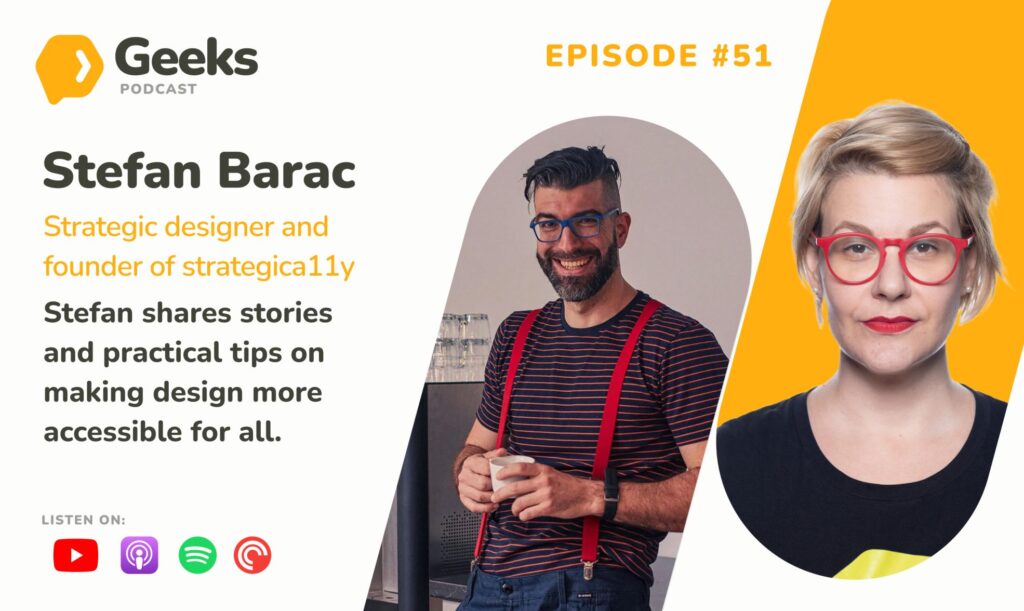If you have any tips on fantastic speakers from across the globe, feedback, or any questions, we’d love to hear from you too. Reach out to geekspodcast@uxtweak.com
👉 Link to study about current state of research resistance from UXtweak.
Episode highlights
- 00:01:26 – Sarah’s background and career shift
- 00:05:49 – Common UX portfolio mistakes
- 00:09:09 – Handling NDAs in portfolios
- 00:20:15 – Interview preparation tips
- 00:27:57 – Freelancers’ application tips
- 00:29:54 – Sarah’s closing thoughts on careers
About our guest Sarah Doody
Sarah Doody is the founder of Career Strategy Lab™, a program that helps UX and product professionals at all career stages navigate their job search and articulate their skills and experience through individualized and group coaching. She is also the host of the Career Strategy Lab podcast.
Since 2021, professionals who have worked with Sarah have increased their salaries by 40% on average and have been hired at prestigious brands such as Microsoft, Amazon, Salesforce, Nordstrom, Spotify, Blue Origin on average in 3.5 months. The program has been so successful since it’s launch that the combined salary of program graduates hired topped nearly $6 million.
Sarah has been named a Future of Work expert by Forbes and is a regular Forbes.com contributor. She has also been featured in Fast Company, Insider, Fox Business, and more.
For more information on Sarah and her work, programs, or speaking engagements, please visit her website, or find her on YouTube (30k), LinkedIn (70k), Instagram (18k), or Twitter (28k).
Podcast transcript
[00:00:00] Tina Ličková:
Welcome to UX Research Geeks, where we geek out with researchers from all around the world on topics they are passionate about. I’m your host Tina Ličková, a researcher and a strategist, and this podcast is brought to you by UXtweak, an all-in-one UX research tool.
[00:00:27] Tina Ličková:
This is the 44 episode of UXR geeks. I spoke to Sarah, a user researcher and experienced designer, who’d over 18 years of industry experience. After years working for various companies, Sarah transitioned into career coaching for surprisingly UX professionals. Recognizing the challenges many face in marketing themselves, and they work. In this episode, we’ll delve into common pitfalls research makes when building portfolios, how to present impactful case studies and how to navigate tricky and the ACE. Whether you are struggling to highlight your value or navigating your job searching tough markets.
This episode is packed with practical advice on standing out, tune in.
So as usual, we got connected through nice people. And I know a little bit about you by spying on your LinkedIn, but Sarah, who are you doing?
[00:01:26] Sarah Doody: Yes. Thanks for having me. I am a user researcher and experienced designer. I have been in the industry for about 18 years and, after working for other people at companies of all different sizes and things a little over 10 years ago, I decided to go out on my own and see if I could, be my own boss and start my own consultancy. And that was great for a few years.
And then I somewhat stumbled into the world of career coaching within user experience. And I think it’s because, not I think, I know it’s because my research skills and instincts made me realize this problem that people were really struggling with. How do they market themselves and communicate their value in the job search?
So that all started in 2017, and now it has pretty much become my full time job. I have a whole business called Career Strategy Lab with a team that helps me run that. And even though I’m not doing user experience projects for other companies, very frequently anymore I love doing it for my own company.
So yeah, that’s what I’m up to these days.
[00:02:46] Tina Ličková: here. I will stay a little because I’m still very curious. And what brought you to the coaching of researchers? And why do you think that they need this coaching of the market themselves?
[00:02:59] Sarah Doody: So maybe let me unpack a little bit more of this story of how this all came to be. So a lot of people were approaching me asking me, how do I make a portfolio? And I created a workshop and thought, I’ll do the workshop and never have to talk about this topic again. To my surprise, that was the genesis of realizing well, actually, user experience people, regardless of what they do, whether they are a writer, a researcher, a designer, a product strategist, you name it. A lot of people struggle with this marketing and really selling themselves in their career. And I think, researchers feel like it’s harder because when it comes to creating a portfolio, I think We often have in our head this idea that portfolio equals beautiful visuals and screens and there’s this completely valid question of how do you put a, qualitative or quantitative or mixed methods research project into a portfolio, right? It’s kind of not the most visually compelling, let’s say, work sometimes, especially if you are not involved in the taking of the research findings and integrating them into the product experience, let’s say. So that’s how this really came to be and I can definitely say even yesterday, I looked through probably 6 different researcher portfolios that I was critiquing and I was blown away at their ability to tell this story of one of them was a survey, which I think involved 30, 000 people. Other ones were research projects around software that farmers use to sell their crops. Honestly, I’m not sure who they sell it to, I guess distributors or factories or something. But if there are researchers listening, which I know there are, please have confidence in knowing that your portfolio does not just need to be a series of beautiful screenshots. If you’re applying for a job, the person interviewing you wants to see your research process. So show that. Don’t worry about digging up mock ups and things.
[00:05:28] Tina Ličková: And I will open it with a bigger question.
I do have some specific things that I saw when I was looking at portfolios or critiquing some of my mentee stuff, or even my thing, but what are the common mistakes in general that researchers do all the time that you get even tired of repeating
[00:05:49] Sarah Doody: When I think about portfolios, I really try to separate the content, meaning the story from the visual presentation of that in the portfolio. The design of it on the slides and the mistake that I see really lies around. The content, the story of the project and here’s what I mean. Most researchers really sell themselves short because their story they tell is very general and vague and doesn’t include context and details to help the reader slash users of that portfolio really understand the depth of what they actually did. So for example, many researchers’ portfolios will just say things like next week conducting a survey, or now I did 20 interviews with stakeholders and customers. And then there might be. a screenshot of a chart to represent, you know, survey answers. Maybe there will be very stereotypical personas on a slide, but that’s all. And the problem with that is that just telling me you did a survey or you did interviews, it’s like, Okay, and tell me more. For the survey or interviews, you need to think about the context, meaning how many interviews? How many survey respondents? Why did you even do this research? Don’t just tell me what you did, the survey or the interviews. Tell me, Why did this research need to happen? What did you want to learn? Why did you choose a survey versus interviews, maybe um, or a focus group? Then most importantly, what did you learn? What was the result from this research? And if you can answer all of those questions, that is going to show that person interviewing you much more than if you just have one or two slides that say, next I created a survey and Google Sheets or not Google Sheets. Google Forms, and then have screenshots of survey data. And I will tell you, most candidates do the latter, meaning they’re only talking about what they did and not answering all those other questions. And so I often say the bar to stand out is very low as a candidate. And if you just take the time to provide that context, that is going to help you stand out far from people who just say what they did.
[00:08:34] Tina Ličková: Right.
And now wondering because immediately, as you said, details and telling more, I know that the audience listening is like, yeah, but what about my NDA? Especially in Europe where, you can’t even sometimes say that he worked for a company or what kind of project you worked on.
What would be your advice there when it comes not only to portfolios, but also the interviews of finding the way of not being cryptic, but telling and selling your work,
[00:09:09] Sarah Doody: Yeah, so I am not well versed in the legal laws of every company, but, or country, I should say. But here’s what I will say. Let’s say you worked for some German company and they said, you can’t talk about the work you did here. Okay. My question to that candidate would be, is there an opportunity to talk about the work you did? without mentioning that company’s name. I personally don’t know if that would help you get around the NDA, but I think if you worked for some German healthcare company sure, don’t talk about their name, but could you say, you conducted research in the healthcare industry, and maybe in this case you can’t talk about The exact things you were trying to learn from the research.
Maybe that would be giving people enough information to realize what the company is. I’m not sure. But I still think there could be an opportunity to say I did research for a company in the healthcare industry. Maybe you could say. It was a consumer company or business to business company to give that context. And then I think you could still talk about your methodology in terms of we, I did a survey to X number of people using this software identified, five, however many key insights, maybe you’re not able to talk about those insights. And the other thing I would do. Ask someone if they were in this situation. Is there a difference between putting information on your resume and in a portfolio versus verbally talking about it in an interview? Because when you’re verbally talking about it in an interview, then, it’s not on a webpage or in a document that is, easily shareable, searchable, etc. So those would be some of the tips I would give people, to think about how you approach that. And then, if you’re working on something that does have screens or designs and things, thinking about, Can you redact or blur or put in fake content to, not expose the company, but still be able to show, you know, the intricacies of the interface that you worked on?
[00:11:32] Tina Ličková: thank you dad for pointing this out. Because I know some folks feel so frozen by the requirements of their contracts or the previous contracts that even finding ways around feels like betraying those contracts.
Some of the business people I spoke to, or even my ex bosses and friends who have companies, sometimes, not swear, but they are not happy if the researcher is talking too much about the methodologies, because some of them are not even the researchers themselves.
What would you say, of course, the question, the answer is obvious talk about how it influenced the business. But if we can’t talk about how it influences the business, how would you bring that part of Oh, this is the research that I did impacted the business?
How would you go about that?
[00:12:24] Sarah Doody: this question is always tricky because I’m often asked how I can talk about the impact that the research had on the business if I left the company before the company implemented the changes from the research? And again, it’s one of those situations where you can’t make it up. And sometimes it’s just a matter of you literally don’t have that information because you’re no longer at that company. But if you are in a situation where you do have that information, then definitely integrate that into the case study. And one tip I would give people is a lot of times people wait until the end of a case study to reveal, voila, here is how this helped the company save a million dollars or make a million dollars or something. I would put that as well. And you could potentially even integrate it into the title of that project in your portfolio. Mixed methods, user research on the checkout of some companies, which resulted in a 10% increase in sales or something. And if you integrate that, just that data point into the title of the project, that helps surface that sooner than if it’s at the end. Other things to think about though reframing what results or impact mean, because a lot of people think it just is related to saving time. increase sales or usership, like numbers and percents and things. But you could also be thinking of, did your research help the company realize the value of research?
Just yesterday, I reviewed a critique of a portfolio where one of the projects was the first research project that company had ever done. And the lessons and outcomes were: They proved the value of research to the management team, and now research was going to be a quarterly priority in the company’s kind of roadmap.
Other things to think about, did that research project, introduce a new software that helped, you know, the research team be more effective, or how were you able to mentor other people on your team about research? So think about not just, this helped the company make money, but impact the team, research team itself, and other people in the company.
[00:14:56] Tina Ličková:
We’ll be right back after a short break with a commercial message from our sponsors.
Hey researchers and fellow UX professionals! If you’ve ever had trouble getting stakeholders on board with your research, I’ve got a quick tip for you. UXtweak has just published the results of their recent survey! There are stats on the current state of research resistance and community-sourced strategies for dealing with stakeholders’ objections to research. Care to learn how other people in the industry are tackling stakeholders’ objections and what helps them push through?
Read the full report at the link in the description.
And I believe as a matter of fact, Everybody is unique, And I’m wondering how to bring the unique messages you as a researcher, as a UX professional into the interview and the whole hiring process.
And especially now where there are folks being laid off and a lot of people are looking for jobs. How would you go about that?
[00:16:05] Sarah Doody: unique messages, do you mean messages about the candidate themselves and what makes them different?
[00:16:12] Tina Ličková: Will be the unique message that I see as a, or the unique message of theirs. Maybe the case studies, what they worked on, but sometimes it’s just, you are, you want to work in finance, you worked in finance. There are a lot of people working in finance, applying for the same job. So you can’t really deliver something special.
So you deliver what you can deliver to you. And then I’m more looking into how to actually show, Oh, 10 people applying for this job.
[00:16:40] Sarah Doody: got it. So one of the things that I really advocate people do in their job search is, spending time studying the job description and doing a little bit of research before you apply for the job. And I imagine people listening are thinking, I don’t want to study the job description because often job descriptions are written so poorly. However If you can put that aside, reframe job descriptions as a set of clues as to what you could mention in a cover letter, or that you could try and highlight in your resume or in your portfolio to help elevate Traits or qualities from your experience that could set you apart from someone else who may have the exact kind of baseline qualifications let’s say, years of experience, industry experience, this, that, the other, but maybe in looking at the company, you realize, oh, This thing about my past experience could make me stand out. For example, let’s continue with this fictitious healthcare company. Maybe you’re a user researcher, you’re applying for a research role at this healthcare company, and perhaps you’ve worked at healthcare companies in the past.
In the past, and maybe the company you’re applying to is some consumer type health product and you have consumer health product experience. I would definitely be including that in your cover letter at the top of your resume and a little about me statement et cetera, but I know a lot of people switch careers into research from various other industries.
I see a lot of teachers, psychologists, journalists, academics, etc. So for those people, if something from your previous career could help you stand out from other candidates, then I would say go for it. Let’s elevate that because, for example, I had a teacher who was applying to research roles and they were very strategic.
And this is a great tip for all of the career switchers, but this teacher was switching careers to research. Instead of applying for any research job, they prioritized research roles at companies that had to do with education because that allowed them to lean on that previous experience in education as something to set themselves apart, versus the researcher who might have 10 years of experience but didn’t have didn’t have experience in education. And I think this is especially true if you’re switching from an industry that is quite complicated or highly regulated because for someone, at least in the United States, like in insurance is a big industry and there are, there is a lot of regulation, especially government regulation around that. And if you already have. have a lot of knowledge around health care insurance compliance and things. That’s not something that someone can learn, three weeks into their job. So those are the types of things people should really try and think about in terms of what extra qualifications or knowledge I have that I could highlight.
[00:20:15] Tina Ličková: And I’m imagining you did detective work on the job description because that’s, and it’s also basically research work.
You have a portfolio, for example, consulted with you, and then you get the invitation for the interview.
What do you think should happen there in the frame of, or in the cluster of preparation as well at the interview?
[00:20:39] Sarah Doody: I love this question because your audience should love the answer because it’s all about research. One of the things that you can do to help yourself stand out is be thinking like a researcher at every step of the job interview process. process. and the application process. So before you apply, we just talked about how to do research before an interview, things that I would be researching would be number one, getting information on the logistics of the interview.
It amazes me how few people We’ll go back to the person scheduling the interview to gather information such as, okay, how long is it? Who is going to be in the interview? Am I going to be expected to present a project? How long do I have to present a project? Asking those questions, number one, shows them you’re quite serious about this and you don’t want to waste their time. And number two, helps you avoid situations where you. Are surprised or caught off guard in the interview. Now, one of the things that you can do if you do get a list of the people who will be in the interview, go to their LinkedIn profile. Similar to what you did with me before this interview, you did a little bit of research. Same thing for the people interviewing you. Look at their LinkedIn and what I would really specifically be looking for is there anything about their LinkedIn that either prompts a question I would like to ask them in the interview. Or, do we have any kind of overlapping common interests? Maybe we both went to the same university and we didn’t know that. Little things like that can help break the ice, for lack of a better word, and you could bring it up if it fits the conversation. And if you do these things, that will help you tailor what you talk about in the interviews to those people, which then helps, you know, your answers not come across as just something you memorized that you’ve said in 10 other interviews.
[00:22:46] Tina Ličková: And maybe the last part, because again, going to the fact that it’s not an easy time for researchers, for the business or any kind of business right now.
And I think sometimes people nowadays are happy to get a job.
It’s also tricky because they can end up in companies they just don’t really fit in.
And this is where I would love your opinion and Advice on how to approach it and how to know yourself from within in the hiring kind of strategy and how to dig into your values and what companies should fit in. And I’m not talking about this kind of motivational stuff, like you have to manifest it and everything.
So it’s not as a, but it’s more like, okay, how do I go about it, I need a job. I want a job. But I have to be careful about what kind of job I’m stepping into.
[00:23:47] Sarah Doody: fully want to acknowledge that, sometimes in our careers, we have the luxury to be picky and other times we need to get a job because we have bills to pay and that’s how the world works. If you are in a situation where you have, first of all, time, and secondly, You do have some breathing room for your job search. One of the things that I think is really important is to do research on yourself. And maybe some of your listeners have worked on products where the company did not do research and we all know how that goes, right? They build features and they spend time and money marketing a product. That people don’t want. And so when it comes to researching yourself, or I have this philosophy of treating your career as a product and yourself as a product. So when you’re researching the product, some of the things that I think about. are very valuable to consider. Number one is evaluating a piece of paper divided into three. And on the left is focused on where you are now in your career? And that brainstorm can be as broad as you want. It could be, salary, job title, size of company, skills, software you use. We could go on forever about that, but where are you now? Could be, your boss’s management style, the industry you work in, who knows. Over at the very far right of that piece of paper is where do you want to be in the future? Again, go as, as specific as you would like there. But then after you brainstorm those two things, We really want to focus on the middle and we want to think about based on where I am now and where I want to be in the future, what is stopping me? And that could be you need to acquire additional skills. Like maybe you don’t have strong qualitative research skills. Maybe you need to acquire management experience. Maybe you need to get experience in a certain industry. But when you break kind of your vision for your career into this, where am I now, where do I want to be, and what’s stopping you, that middle column gives you clues as to either skills and experience you need to prioritize, Or it could also help you narrow down your job search because if you want to be a researcher or not a researcher, if you want to be a research manager, say, in 2 years, great, you don’t have any management experience. Ideally, the job you take next is going to give you opportunities to get more management experience because a lot of people think a lot of people make this mistake and maybe you’ve seen this as well in your mentoring, but people are only thinking about the job they get next and not the job they want to have after that job and in order to get that job four years from now. The job you take next might need to set you up with opportunities to get skills, experience, et cetera, that then makes you qualified for that, say, research manager position for years from now. So that’s really 1 of the most important things. And the other thing, it’s a very quick exercise, and I won’t go into, wild detail here, but I call it and loathe L O A T H E, and loathe activity, where you just brainstorm, set a timer, whatever works for your brain, but just brainstorm like, what do I like and what do I loathe? About my job right now and or jobs I’ve had in the past. And if you do that will help surface the things you value or your deal breakers for your next job, whether that is team size, management style, industry, responsibilities you have, et cetera. But as researchers, this should be pretty, pretty easy and maybe even enjoyable too for people.
[00:27:57] Tina Ličková: as a freelancer, and I’m almost celebrating my first year in this freelance. Role. Thank you. Is there something different that you would say when freelancers apply for contracts and, or for some part time jobs, what would you advise them to do? Because all of these practical tips are there anything else you would say for freelancers, please do this and don’t do that.
[00:28:22] Sarah Doody: Yeah, I think for freelancers and having freelanced for years myself when I think of my own experience, I think some of the skills that freelancing really helped me acquire were things like project management, stakeholder management and dealing with tricky situations and uncomfortable conversations. And so perhaps as a freelancer, depending on the role you’re applying to and what you’re going to do in that role, thinking about the skills that you have beyond the doing of the research, let’s say, and see if there’s any of your kind of business skills or people skills that you acquire as a freelancer that you could highlight going into or applying for those freelance roles. Because I just think, as a freelancer, you’re a business owner. And so maybe even you’re flexing your business analysis skills that maybe someone else may not have. So have a think about what you have after you look at the job description and see what kind of more soft skills are, less research focused skills might apply for that role you’re applying for.
[00:29:37] Tina Ličková: Sarah, thank you very much. I really loved how you pointed out that it’s not just the job that you’re applying now, but that you’re looking for the next steps and the practical tips that are given are really precious ones. So thank you for it. Thank you for your wisdom.
[00:29:54] Sarah Doody: Thank you for having me. Yeah, I hope this helps researchers feel more at ease and maybe more in control of their job search too, now that they realize they can really leverage their research skills for their career.
[00:30:09] Tina Ličková:
Thank you.
Thank you for listening to UXR Geeks. If you enjoyed this episode, please follow our podcast and share it with your friends or colleagues. Your support is really what keeps us going.
If you have any tips on fantastic speakers from across the globe, feedback, or any questions, we’d love to hear from you too. Reach out to geekspodcast@uxtweak.com
Special thanks goes to our podcast producer, Jana Filušová, our social media specialist Daria Krasovskaja and our audio specialist Melisa Danišová. And to all of you. Thanks for tuning in.
💡 This podcast was brought to you by UXtweak, an all-in-one UX research tool.
